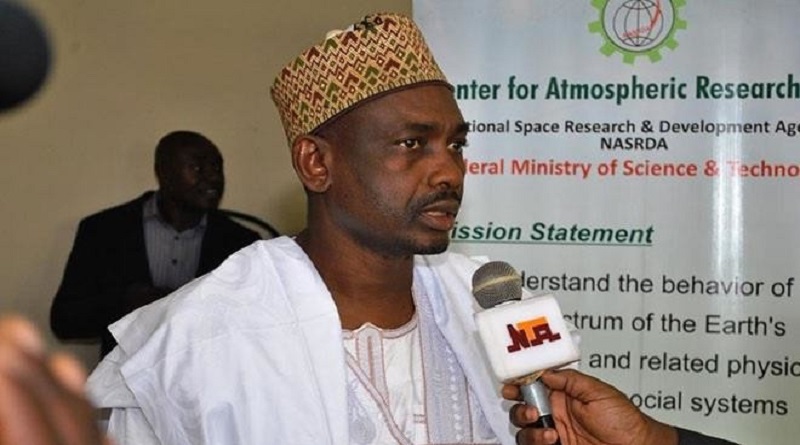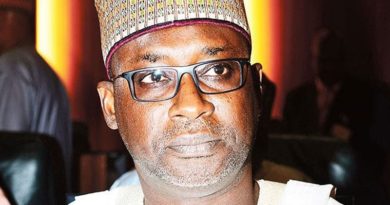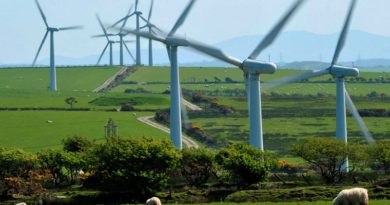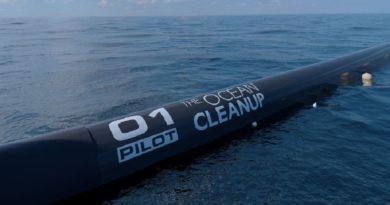NASRDA advocates use of space technology for smart, precision farming
The National Space Research and Development Agency (NASRDA) says “smart and precision agriculture’’ could be promoted through the application of space technology.
Prof. Seidu Mohammed, Director-General of the agency, said this measure would go a long way to spur economic recovery and growth in Nigeria.
He made this assertion on Tuesday in Abuja at the “Annual Space Conference and Exhibition,’’ organised by the Centre for Satellite Technology Development (CSTD).
Smart agriculture is an approach to understand the basic requirement as well as the changes in current environment due to external factors.
The theme of the conference is “Revolutionising Agriculture through Space Science and Technology Applications.”
Mohammed said it was important that Nigeria’s Space Policy be tailored to the country’s reality and socio-economic situations so as to enable citizens’ benefit from space technology.
According to him, the population of the country is increasing, which requires regular geo-mapping of its environment for proper planning and it will reduce farmers/herders clash.
He emphasised that revenue from oil was insufficient to sustain the population growth of the country and there was the need for diversification in enhancing economic growth.
“Most of the Nigeria laws were gazetted in the 1950’s and that was when the population of Nigeria was below 45 million.
“Today, we are talking about 200 million; the land has remained the same.
“Satellite is the tool we can use to acquire data and enable us to see the earth.
“We have to reach a compromise in terms of resources to use to create stability for the movement of herdsmen to avoid encroachment of farms.
“Although oil revenues contribute two third of state revenues, it only contributes about nine per cent to the Gross Domestic Product.
“The huge labour force requirement of the sector makes it a viable employer of labour, which is an important ingredient for Nigeria to grow fast being an emerging economy to an economic power.
“Research in modern farm practices will be greatly aided by space technology.”
In his remark, Dr Spencer Onuh, Director CSTD, said a nation that could not feed itself would become a threat to its own sovereign existence.
Onuh said there was the need for African countries to employ effective economic agricultural practices, modern tools and innovative technologies in agriculture for high yield, reduction of hunger.
“We believe that the merging of the space and agricultural sectors will deliver what Nigeria needs.
“With the application of space, science and technology, you can feed a nation and not a family.”
The director said people would value space technology when they realised that it affected their lives directly, adding that space application worked in online banking and mobile communication.
He, however, said that when food was lacking, the security of the nation would be at risk.
According to him, the old fashion of using cutlasses and hoes for farming should be phased out and replaced with irrigation, mechanised farming using space technology.
He called on stakeholders to collaborate with the agency for the country to benefit from space technology.
Also, Prof. Placid Njoku, in his keynote address, said Nigeria needed to come along with scientists, technologists across the world.
Njoku said unmanned aerial vehicles, artificial intelligence, climate change and agricultural insurance were part of emerging issues in revolutionalised agriculture.
“The issue of precision farming is gaining grounds around the world because it helps determine the soil, the plants and it will help for a better output.
“We need to develop its applications and the packages that will enable the farmers to understand what is happening on his farm.
“When we had the e-wallet, it enabled farmers to know where to get fertilisers and the cost.
“With agriculture space technology, we can educate the farmers on crops to plant, what to produce on their land, fertiliser to use and also measure productivity of the farm.”
He recommended that the Federal Government should upscale its understanding of space, science and technology.
According to him, the government should provide three per cent of the country’s consolidated revenue fund to CSTD and NASRDA annually.
He said that if they were adequately funded, they would provide proper and timely information to the government as well as averting climate change.
By Ijeoma Olorunfemi




